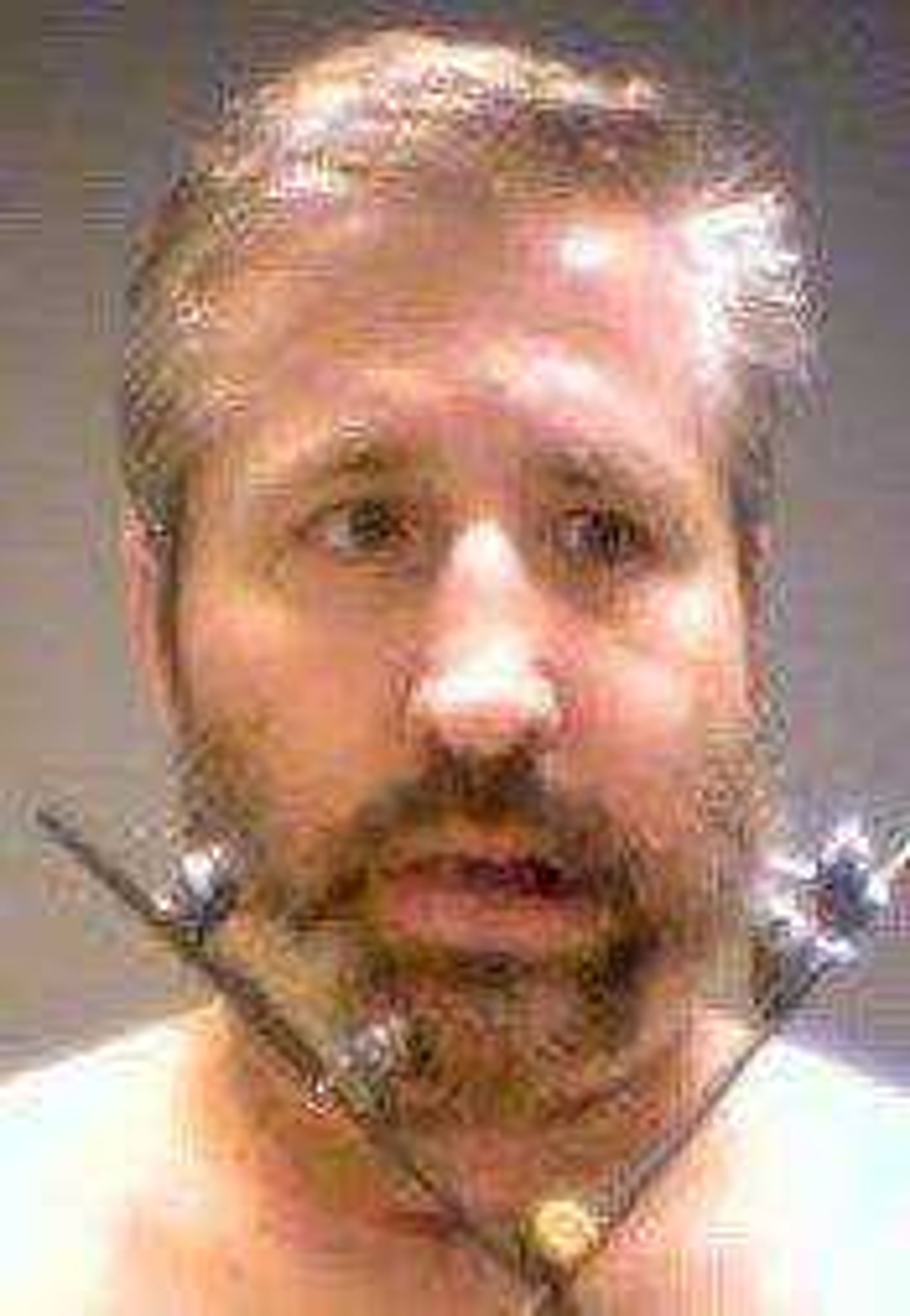Lawrence Guthrie, the Jackson man who allegedly exchanged gunfire with police and then turned the gun on himself during a domestic dispute call in June, pleaded not guilty by reason of mental defect Monday. His lawyer wants to explore the possibility that the former Marine and Desert Storm veteran may not have been responsible for his actions because he was suffering from post-traumatic stress disorder.
Prosecutors responded later in the day that genuine cases of mental disease or defect that are severe enough to legally exempt someone from responsibility are rare and difficult to prove.
Through his lawyer, Bryan Greaser, Guthrie, 46, filed a motion to enter the not guilty plea in Jackson on Monday before Judge Benjamin Lewis. Guthrie also waived his arraignment and filed a motion to have his $500,000 bond reduced, which will be considered at a Sept. 28 hearing.
Under Missouri law, a person is not responsible for criminal conduct if, at the time, the person was incapable of "knowing and appreciating" what they were doing because of mental disease or defect.
Guthrie was being treated by Veterans Affairs for post-traumatic stress disorder when police responded to a domestic dispute call in which Guthrie had allegedly assaulted his wife and even had taken a shot at her. When law enforcement arrived, they were greeted by gunfire. Guthrie faces charges of attempted assault on a police officer, one of first-degree domestic assault and one of armed criminal action. If found mentally sound and convicted, Guthrie faces a maximum sentence of life in prison.
"We're leaving that open to explore," Greaser said following the hearing. "This was pretty out of character for Larry. This is not someone who has been involved with the criminal justice system for a long time. When you get someone in their 40s or 50s that hasn't been a chronic lawbreaker, you have a duty to explore their medical, mental and psychiatric condition. What caused him to behave that way when he had never done so before?"
His wife believes her husband was suffering from the disorder. In the two years prior, she saw Guthrie go through mood swings and his behavior change in other ways. While she and her husband had initiated divorce proceedings before the incident, they have since reconciled, she said, because she would lose their home if they divorced. The Southeast Missourian is not identifying Guthrie's wife by name due to its policy not to identify victims.
"He was different," she said Monday. "He used to give a lot of time to public service. He ran a food pantry for a year. He also spent 13 years serving his country in a time of war. That's why I know when he did this, he was not himself. I know he wasn't."
The two actually met while both served in the U.S. Marines, she said. During Operation Desert Storm, she served stateside while he was sent to Bahrain on the western shores of the Persian Gulf. When he returned, Guthrie never mentioned his service or whether he saw combat.
"He wouldn't talk about it," his wife said.
His wife also testified at her husband's preliminary hearing that Guthrie was taking 13 medications to treat the disorder.
Cape Girardeau County Prosecuting Attorney Morley Swingle on Monday said that the filing means that the court will appoint a psychiatrist to determine whether Guthrie understood what he was doing that day. If a psychiatrist believes Guthrie did not understand the crime because of mental disease, Swingle can object and ask for a second opinion, he said. If the sides still don't agree, Guthrie's soundness of mind becomes a matter for a jury. If the sides agree, then Guthrie would be sent to a mental institution instead of a prison until a judge releases him.
Swingle said genuine not-guilty-by-mental-defect cases are rare and that he sees about one a year. The standard is very high, he said.
"It's not just enough to have a mental disease," Swingle said. "It has to be a mental disease so severe that it prevents you from understanding what you're doing."
But Swingle said he would definitely oppose bond reduction, despite Greaser's pleas that Guthrie's medical condition is deteriorating. When Guthrie shot himself in the chin, a brace was put into his chin along with stitches. A major surgery is needed quickly, Greaser said.
Swingle said he won't reconsider.
"He's extremely dangerous," Swingle said.
smoyers@semissourian.com
388-3642
Pertinent address:
100 Court St., Jackson, MO
Connect with the Southeast Missourian Newsroom:
For corrections to this story or other insights for the editor, click here. To submit a letter to the editor, click here. To learn about the Southeast Missourian’s AI Policy, click here.







